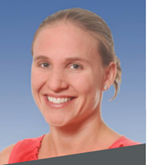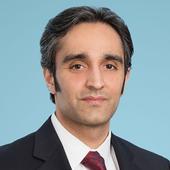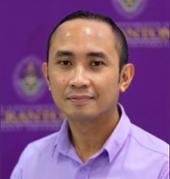Agenda
-
Welcome and introduction
- Session 4: International Standards, RohS and other global updates
-
RoHS around the world: Examples from certain countries and future developments
- Overview of RoHS regulations outside Europe: from Saudi Arabia to the United Arab Emirates, from China and Japan to California.
- Key differences in regulatory requirements in these countries.
- How retailers and brands can proactively overcome these challenges.
-
E-waste approaches in Asia - current policy status, challenges and opportunities
- the overall e-waste management approaches in key-Asian countries incl. policies and legislations;
- the main challenges in regions fighting a growing e-waste avalanche
- what circular economy and other strategic approaches towards sustainability offer to solve the e-waste challenge
 Ruediger Kuehr
Head, UNITAR Bonn Office & Manager SCYCLE Programme / Adjunct Professor University of Limerick (Ireland), United Nations Institute for Training and Research (UNITAR)
Ruediger Kuehr
Head, UNITAR Bonn Office & Manager SCYCLE Programme / Adjunct Professor University of Limerick (Ireland), United Nations Institute for Training and Research (UNITAR) -
Sustainability standards and the updated EPEAT criteria
 Rachel Simon
Senior Manager, Technology Assessment and Resource Development, Global Electronics Council
Rachel Simon
Senior Manager, Technology Assessment and Resource Development, Global Electronics Council -
Q&A
-
Short break
- Session 5: PFAS in electronics
-
PFAS restrictions in Europe
- Currently restricted PFAS
- Recent news about the EU PFAS ban plan
- Pressure on the electronics industry and its supply chain
-
US PFAS regulations and the interplay between TSCA and EPA's PFAS blueprint
-
Moving away from PFAS and towards safer chemical alternatives
- The rapidly changing landscape of PFAS restrictions is challenging but it's also an opportunity.
- "PFAS-free" statements establish a false equivalency with regards to safety and sustainability.
- Companies can leverage certifications and supply chain collaborations to find safer alternatives and avoid regrettable substitutes.
-
Q&A
-
Break
- Session 6: Substance specific issues
-
-
Navigating the complexities around conflict minerals
- The presentation will briefly outline the potential risks linked to conflict minerals (such as conflict and violence, corruption and money laundering, health and safety violations, environmental damage, child and forced labor, and other human rights abuses).
- The presentation will then explore the legal framework in place for the 3TG minerals (i.e. tin, tungsten, tantalum, and gold) and the obligations placed on companies under the EU Conflict Minerals Regulation and the U.S. Dodd-Frank Act.
- The presentation will also briefly examine the role of the non-binding OECD Due Diligence Guidance, the UNGPs, and the SDGs for companies in the context of conflict minerals.
-
Update on the Stockholm Convention and POP substance bans
- Overview of Stockholm Convention provisions
- Process for listing new POPs and how to engage
- POPs in electronics: restrictions and exempted uses
- What can we expect in the future?
-
ECHA flame retardants strategy and the sustainability of brominated flame retardants
-
Google’s 2024 Chemical Management Policy: Eliminating high hazards for flame retardants beyond regulations
-
Q&A
-
Short break
- Session 7: New technology shaping innovation
-
Machine learning techniques for developing sustainable chemical materials
-
Addressing PFAS to enable a sustainable future for computing
 Brooke Tvermoes
Manager - Environmental and Chemical Management Programs, IBM Corporate Environmental Affairs
Brooke Tvermoes
Manager - Environmental and Chemical Management Programs, IBM Corporate Environmental Affairs -
Q&A
-
Close of conference














